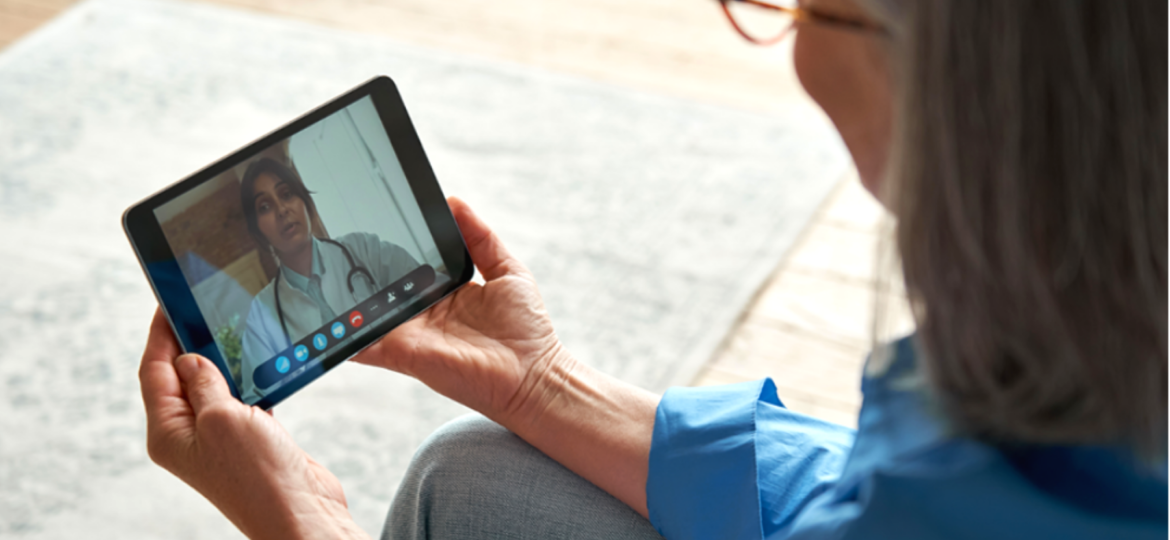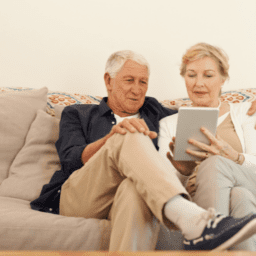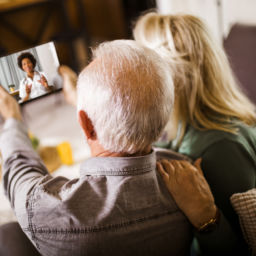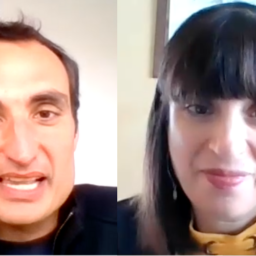Imagine if you had access to your doctor or movement disorder specialist via a computer was just a few clicks away. Or you could have an appointment via the phone in the comfort of your own living room.
Telemedicine makes that possible.
Telemedicine is the practice of healthcare in an online format. As video conferencing technology has developed and become more reliable and secure, and as COVID demanded that we stay safe at home, more physicians and specialists began offering their services through video calls in addition to or instead of in-person appointments.
In this episode
During this session facilitated by Dr. Soania Mathur, panelists Dr. Roseanne Dobkin and Dr. Ray Dorsey discussed the state of telemedicine in the US, the laws that impact its use, and the efforts being made by advocates and policy makers to ensure that it’s legal, safe, and sustainable for the largest number of people. They also discussed the logistics of a telemedicine call and what to do to make sure you get the most out of your medical team during these virtual sessions.
To download the transcript, click here.
Note: This isn’t a perfect transcript, but it’s close.
Show Notes
- Due to the pandemic, telemedicine restrictions have been loosened nationwide
- For telemedicine to be practiced across state lines, medical providers must have appropriate licensure for the state in which they live, in addition to the state in which the patient lives. These regulations vary state to state
- Prior to the pandemic, Medicare spent less than .1% of their budget on telemedicine. Because of COVID-19 and corresponding Public Health Emergency legislature, Medicare has temporarily suspended their restrictions on telemedicine. However, once the emergency legislature goes away, it is likely Medicare restrictions on telemedicine will be put back in place
- Several studies have been done on the effectiveness of telemedicine, the outcome of which has been overwhelmingly positive
- Our speakers attested to numerous benefits of telemedicine in comparison to in-person-care, including reduced commute time, higher patient comfort, higher convenience, higher confidentiality of services, increased access to care, a reduction in medical center transmitted illnesses, fewer missed or cancelled appointments, and higher adherence to therapy
- To prepare for your telemedicine appointment, you can request from your provider’s office a test video call to ensure you have a solid connection. It’s also a good idea to create a list of things to be discussed (since sometimes the technology can be distracting), and if possible, have a care partner or friend nearby to troubleshoot
- Thanks to telemedicine, people with Parkinson’s have the ability to see medical specialists who otherwise would be geographically inaccessible. Unfortunately, many communities may not have the necessary technology or internet access needed to conduct telemedicine. To begin to level this inequity, communities can create spaces in public buildings such as libraries, post offices, or schools where community members can access these resources
- PD Avengers and other Parkinson’s advocacy groups are currently conducting a “Red Letter Campaign,” in which people with Parkinson’s from across the country will be sending letters to the White House requesting the following three actions:
- To ban chemicals that are linked to Parkinson’s, including paraquat, core purifiers, and trichloroethylene
- To ask that Medicare make its coverage of telemedicine permanent
- To ask the NIH to increase its funding tenfold
- To learn more and get involved in the campaign, email info@endingpd.org
Additional Resources
How Telemedicine Can Help You Live Well with Parkinson’s
Additional Parkinson’s Worksheets, Checklists, and Assessments
How to Communicate with your Parkinson’s Doctors
How to Stay Connected to your Parkinson’s Community During Lockdown
Search for Movement Disorder Specialists
How Rehabilation Specialists Are Embracing Telemedicine
Find a Parkinson’s Physical Therapist Near You
Article by Michael S. Okun, “Parkinson’s Disease Needs an Operation Warp Speed”
Live Well Today Webinar Series Presenting Partners*

*While the generous support of our sponsors makes our educational programs available,
their donations do not influence Davis Phinney Foundation content, perspective, or speaker selection.
Thanks for Listening!
To share your thoughts:
- Leave a note in the comment section below.
- Ask a question by emailing us here.
- Share this show on Facebook.
To help out the show:
- Leave an honest review on iTunes. Your ratings and reviews really help, and we read each one.
- Subscribe on iTunes.
Listen & Subscribe
Apple Podcasts | Stitcher
*The Second Season of the Parkinson’s Podcast is made possible through generous support in honor of Dr. Margaret Hilgartner.

















